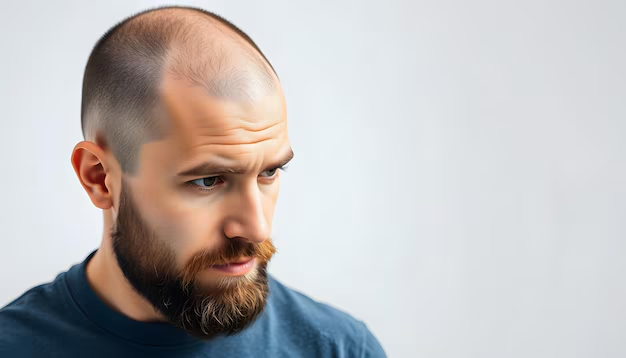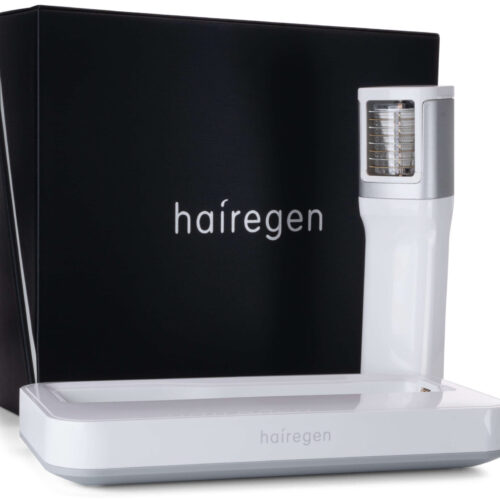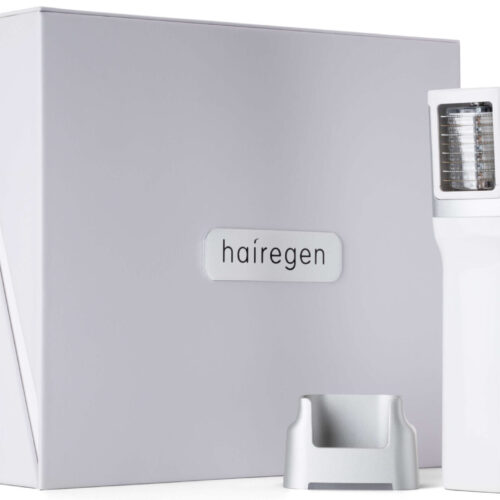to Restoring Your LocksHair loss can be a distressing experience, impacting both men and women across various age groups. While genetics play a significant role in hair health, numerous natural methods can help stimulate growth and improve the overall condition of your hair. This comprehensive guide explores evidence-based strategies, debunks common myths, and provides actionable tips to help you regrow your hair naturally.

Understanding Hair Growth and Loss
Before diving into natural remedies, it’s crucial to understand the basics of hair growth and the factors that contribute to hair loss. Hair growth occurs in cycles, with each follicle going through phases of growth, rest, and shedding. Various factors can disrupt this cycle, leading to thinning hair or baldness.
The Hair Growth Cycle
- Anagen Phase: The active growth phase, lasting 2-7 years
- Catagen Phase: A transitional phase lasting about 2 weeks
- Telogen Phase: The resting phase, lasting around 3 months
- Exogen Phase: The shedding phase, where old hairs fall out
Common Causes of Hair Loss
- Hormonal changes (e.g., pregnancy, menopause)
- Nutritional deficiencies
- Stress and trauma
- Medical conditions (e.g., thyroid disorders, autoimmune diseases)
- Certain medications
- Aging
- Genetics (androgenetic alopecia)
Understanding these factors can help you identify potential causes of your hair loss and choose appropriate natural remedies to address the issue.
Nutrition for Healthy Hair Growth
A balanced diet rich in essential nutrients is fundamental for promoting hair growth and maintaining healthy locks. Certain vitamins, minerals, and proteins play crucial roles in hair health and can help combat hair loss when incorporated into your daily diet.
Key Nutrients for Hair Health
Protein: As hair is primarily composed of protein, ensuring adequate intake is vital. Include lean meats, fish, eggs, legumes, and nuts in your diet.
Iron: Iron deficiency is a common cause of hair loss, particularly in women. Consume iron-rich foods such as spinach, lentils, and red meat, or consider supplements if recommended by a healthcare professional.
Zinc: This mineral is essential for hair tissue growth and repair. Good sources include oysters, beef, pumpkin seeds, and lentils.
Vitamin A: Necessary for cell growth, including hair cells. Find it in sweet potatoes, carrots, and spinach.
B-vitamins: Biotin (B7) and other B-vitamins support hair growth. Sources include eggs, nuts, and whole grains.
Vitamin C: Aids in collagen production and iron absorption. Citrus fruits, berries, and bell peppers are excellent sources.
Vitamin D: Low levels have been linked to hair loss. Sunlight exposure and fatty fish can help maintain adequate levels.
Omega-3 fatty acids: These healthy fats nourish hair follicles and support scalp health. Incorporate fatty fish, flaxseeds, and chia seeds into your diet.
Creating a Hair-Healthy Meal Plan
To ensure you’re getting a good balance of these nutrients, consider the following meal ideas:
- Breakfast: Spinach and mushroom omelet with whole-grain toast
- Lunch: Grilled chicken salad with mixed greens, nuts, and berries
- Dinner: Baked salmon with quinoa and roasted vegetables
- Snacks: Greek yogurt with pumpkin seeds, or carrot sticks with hummus
Remember, consistency is key when it comes to nutrition. Aim to maintain a balanced diet over time to see improvements in hair health and growth.
Scalp Care and Massage Techniques
A healthy scalp provides the foundation for strong, vibrant hair growth. Proper scalp care and regular massage can improve blood circulation, reduce stress, and create an optimal environment for hair follicles to thrive.
The Importance of Scalp Health
Your scalp is essentially the soil from which your hair grows. Just as plants need healthy soil to flourish, your hair needs a healthy scalp to grow strong and thick. Factors that can affect scalp health include:
- Excess oil production
- Dryness and flaking
- Buildup of styling products
- Fungal or bacterial infections
- Poor circulation
Effective Scalp Care Routine
Cleanse regularly: Use a gentle, sulfate-free shampoo to remove dirt, oil, and product buildup without stripping natural oils.
Exfoliate: Once a week, use a scalp scrub or exfoliating brush to remove dead skin cells and promote circulation.
Moisturize: Apply a lightweight, non-comedogenic oil or serum to keep your scalp hydrated.
Protect: Shield your scalp from sun damage by wearing a hat or using hair products with UV protection.
Scalp Massage Techniques
Regular scalp massages can stimulate blood flow, reduce stress, and potentially encourage hair growth. Here are some techniques to try:
Fingertip Massage: Using your fingertips, apply gentle pressure in circular motions across your scalp for 5-10 minutes daily.
Scalp Massager: Use a handheld scalp massager to provide consistent pressure and stimulation.
Oil Massage: Combine massage with nourishing oils like coconut, jojoba, or argan oil for added benefits.
Pressure Point Massage: Focus on specific pressure points around the hairline and crown to relieve tension and promote circulation.
Incorporate these techniques into your daily routine, perhaps while applying shampoo or before bed, to maximize their potential benefits for hair regrowth.
Natural Oils and Herbal Remedies
Nature provides a wealth of oils and herbs that have been used for centuries to promote hair growth and improve scalp health. While scientific evidence varies, many people find these natural remedies beneficial when used consistently.
Essential Oils for Hair Growth
Rosemary Oil: Known for its ability to improve cellular generation and increase circulation.
Peppermint Oil: Provides a cooling sensation and may help increase blood flow to hair follicles.
Lavender Oil: Has antimicrobial properties and may help balance scalp oil production.
Tea Tree Oil: Possesses antifungal and antibacterial properties, beneficial for scalp health.
Cedarwood Oil: May help balance oil-producing glands and reduce hair loss.
How to Use Essential Oils
- Dilute 5-10 drops of essential oil in 1 tablespoon of carrier oil (e.g., coconut, jojoba, or almond oil).
- Apply the mixture to your scalp and massage gently.
- Leave on for at least 30 minutes or overnight before washing.
- Use 2-3 times per week for best results.
Herbal Remedies for Hair Growth
Saw Palmetto: May help block the production of DHT, a hormone linked to hair loss.
Ginseng: Contains compounds that may promote hair follicle growth.
Aloe Vera: Soothes the scalp and may help unblock hair follicles.
Ginkgo Biloba: Improves circulation, potentially benefiting hair growth.
Horsetail: Rich in silica, which may strengthen hair and promote growth.
Incorporating Herbs into Your Hair Care Routine
- Brew strong herbal teas and use as a hair rinse after shampooing.
- Look for hair care products containing these herbs as active ingredients.
- Consider supplements after consulting with a healthcare professional.
Remember to perform a patch test before using any new oil or herb to ensure you don’t have an allergic reaction. While these natural remedies can be effective, results may vary, and consistency is key.

Lifestyle Changes for Healthier Hair
Your daily habits and overall lifestyle can significantly impact your hair health. By making some simple adjustments, you can create an environment that supports natural hair regrowth and maintains the health of your existing hair.
Stress Management
Chronic stress can contribute to hair loss and hinder regrowth. Implement these stress-reduction techniques:
- Meditation and mindfulness practices
- Regular exercise
- Adequate sleep (7-9 hours per night)
- Yoga or tai chi
- Deep breathing exercises
Hair-Friendly Sleep Habits
- Use a silk or satin pillowcase to reduce friction
- Avoid tight hairstyles while sleeping
- Keep hair moisturized overnight with a leave-in conditioner
- Elevate your head slightly to improve circulation to the scalp
Hydration and Hair Health
Proper hydration is crucial for overall health, including hair growth. Aim to:
- Drink at least 8 glasses of water daily
- Consume water-rich foods like cucumbers and watermelon
- Limit caffeine and alcohol intake, which can dehydrate the body
Exercise for Hair Growth
Regular physical activity can boost circulation, reduce stress, and promote overall health, benefiting your hair. Consider:
- Cardiovascular exercises like jogging, swimming, or cycling
- Yoga poses that increase blood flow to the scalp (e.g., downward dog, forward bend)
- Strength training to improve overall circulation
Avoiding Harmful Hair Practices
Certain habits can damage hair and impede growth. Minimize or avoid:
- Excessive heat styling (use heat protectant products when necessary)
- Tight hairstyles that pull on the scalp
- Harsh chemical treatments
- Overwashing or using sulfate-heavy shampoos
- Rough towel-drying
By incorporating these lifestyle changes, you create a holistic approach to hair health that complements other natural regrowth methods.
Supplements and Vitamins for Hair Growth
While a balanced diet should be your primary source of nutrients, supplements can help fill nutritional gaps and support hair growth. However, it’s essential to consult with a healthcare professional before starting any new supplement regimen.
Key Supplements for Hair Health
Biotin (Vitamin B7): Supports keratin production and may improve hair growth.
Vitamin D: Deficiency is linked to hair loss; supplementation may help if levels are low.
Iron: Essential for hair growth, especially for those with iron-deficiency anemia.
Zinc: Supports hair tissue growth and repair.
Omega-3 Fatty Acids: Nourishes hair follicles and supports scalp health.
Collagen: May improve hair strength and elasticity.
Saw Palmetto: Can help block DHT, a hormone linked to hair loss.
Choosing Quality Supplements
When selecting supplements:
- Look for reputable brands with third-party testing
- Check for allergens and potential interactions with medications
- Choose forms that are easily absorbed by the body (e.g., liquid or gel capsules)
Natural Food Sources of Hair-Healthy Nutrients
While supplements can be beneficial, obtaining nutrients from whole foods is ideal. Consider incorporating these foods into your diet:
- Biotin: Eggs, nuts, sweet potatoes, salmon
- Vitamin D: Fatty fish, egg yolks, fortified foods
- Iron: Spinach, lentils, red meat, fortified cereals
- Zinc: Oysters, beef, pumpkin seeds, lentils
- Omega-3s: Fatty fish, flaxseeds, chia seeds, walnuts
- Collagen: Bone broth, fish, egg whites
Remember, supplements should complement a healthy diet and lifestyle, not replace them. Be patient, as it may take several months to see noticeable improvements in hair growth.
Scalp Treatments and Hair Masks
Nourishing your scalp and hair with targeted treatments can significantly boost your natural hair regrowth efforts. These treatments provide intense hydration, deliver essential nutrients, and create an optimal environment for hair growth.
DIY Scalp Treatments
Coconut Oil and Rosemary Scalp Treatment:
- Mix 2 tablespoons of coconut oil with 5 drops of rosemary essential oil
- Massage into the scalp and leave for 30 minutes before washing
Apple Cider Vinegar Rinse:
- Mix 1 part apple cider vinegar with 3 parts water
- Apply to scalp after shampooing, leave for 5 minutes, then rinse
Green Tea Scalp Spray:
- Brew strong green tea and let it cool
- Pour into a spray bottle and mist onto the scalp daily
Nourishing Hair Masks
Avocado and Egg Mask:
- Mash 1 ripe avocado and mix with 1 egg
- Apply to hair and scalp, leave for 20 minutes, then wash
Banana and Honey Mask:
- Blend 1 ripe banana with 2 tablespoons of honey
- Apply to hair, cover with a shower cap, and leave for 30 minutes
Aloe Vera and Castor Oil Mask:
- Mix 2 tablespoons of aloe vera gel with 1 tablespoon of castor oil
- Apply to scalp and hair, leave for 1 hour before washing
Frequency of Treatments
- Scalp treatments: 1-2 times per week
- Hair masks: Once a week or every other week, depending on hair type
Tips for Maximum Benefit
- Apply treatments to slightly damp hair for better absorption
- Use gentle heat (like a warm towel) to enhance penetration
- Be consistent with your chosen treatments for best results
Remember to patch test any new ingredients to avoid potential allergic reactions. With regular use, these treatments can help improve scalp health and promote natural hair regrowth.
The Role of Haircare Products
Choosing the right haircare products is crucial in supporting natural hair regrowth. The products you use can either nourish and protect your hair or potentially contribute to damage and hair loss. Here’s how to select and use hair products that promote healthy growth.
Shampoo Selection
- Look for gentle, sulfate-free formulas
- Choose products with natural ingredients like biotin, keratin, or saw palmetto
- Consider pH-balanced shampoos to maintain scalp health
- Avoid harsh chemicals and artificial fragrances
Conditioner Considerations
- Use a moisturizing conditioner to prevent breakage
- Look for ingredients like argan oil, shea butter, or aloe vera
- Consider leave-in conditioners for extra hydration
- Apply conditioner mainly to the lengths and ends of hair, avoiding the scalp if you have oily hair
Styling Products
- Opt for lightweight, non-greasy styling products
- Look for products with heat protectants if you use hot tools
- Avoid products with alcohol, which can dry out hair
- Consider natural styling aids like aloe vera gel or coconut oil
Hair Growth-Specific Products
- Look for serums or treatments containing minoxidil (if recommended by a healthcare professional)
- Consider products with peptides or growth factors
- Try scalp treatments with caffeine or peppermint oil to stimulate circulation
Application Tips
- Use products sparingly to avoid buildup
- Focus shampoo on the scalp and conditioner on the lengths
- Rinse thoroughly to prevent residue
- Apply styling products to damp hair for even distribution
Natural Alternatives
If you prefer to avoid commercial products, consider these natural alternatives:
- Coconut oil as a pre-shampoo treatment
- Apple cider vinegar rinse for clarifying
- Aloe vera gel as a natural styling product
- Herbal tea rinses for added nutrients
Remember, what works for one person may not work for another. Be patient and willing to experiment to find the best product combination for your hair type and growth goals.
Best selling hair growth products:
Innovative Technologies for Hair Regrowth
As research in hair restoration advances, new technologies are emerging to support natural hair regrowth. While these methods may not work for everyone, they offer promising alternatives or complements to traditional treatments.
Low-Level Laser Therapy (LLLT)
LLLT uses red light wavelengths to stimulate hair follicles and promote growth.
- How it works: Increases blood flow and cellular activity in the scalp
- Devices: Laser combs, helmets, or caps for at-home use
- Frequency: Typically used 2-3 times per week
- Effectiveness: Studies show improved hair density and thickness in some users
Microneedling
This technique involves using tiny needles to create micro-injuries in the scalp, stimulating collagen production and hair growth.
- How it works: Triggers the body’s natural healing response
- Devices: Derma rollers or professional microneedling tools
- Frequency: Usually done every 4-6 weeks
- Effectiveness: May enhance the absorption of topical treatments and stimulate hair growth
Platelet-Rich Plasma (PRP) Therapy
PRP therapy uses a concentration of a patient’s own platelets to accelerate healing and stimulate hair growth.
- How it works: Growth factors in platelets activate hair follicles
- Procedure: Blood is drawn, processed, and injected into the scalp
- Frequency: Typically a series of treatments over several months
- Effectiveness: Shows promise in promoting hair growth and density
Hairegen Device
The Hairegen device offers a multi-faceted approach to hair restoration:
Features:
- Mechanical action for scalp stimulation
- Electrical stimulation of hair follicles
- Biochemical action to suppress DHT
- Optical action (Premium model) for cellular regeneration
Benefits:
- Non-invasive and drug-free
- Combines multiple hair growth technologies
- Convenient for at-home use
Usage: Follow manufacturer’s instructions for frequency and duration
While these technologies show promise, it’s important to consult with a healthcare professional or trichologist before starting any new treatment. They can help determine the most appropriate approach based on your individual hair loss pattern and overall health.
Addressing Specific Hair Loss Conditions
Different types of hair loss may require tailored approaches for natural regrowth. Understanding the specific condition affecting your hair can help you choose the most effective remedies and treatments.
Androgenetic Alopecia (Male/Female Pattern Baldness)
This genetic condition is influenced by hormones, particularly DHT.
Natural approaches:
- Saw palmetto supplements or topical applications
- Scalp massage to improve blood flow
- Pumpkin seed oil consumption
- Low-level laser therapy
- Stress reduction techniques
Telogen Effluvium
This temporary hair loss is often triggered by stress, illness, or hormonal changes.
Natural approaches:
- Stress management techniques (meditation, yoga)
- Balanced diet rich in iron and protein
- B-complex vitamins
- Scalp treatments with rosemary or peppermint oil
- Adequate sleep and exercise
Alopecia Areata
An autoimmune condition causing patchy hair loss.
Natural approaches:
- Anti-inflammatory diet
- Stress reduction
- Essential oil treatments (lavender, rosemary)
- Scalp massage
- Zinc and biotin supplements (under medical supervision)
Traction Alopecia
Hair loss caused by tight hairstyles or excessive pulling.
Natural approaches:
- Avoid tight hairstyles and heat styling
- Use gentle hair ties and accessories
- Scalp massage with nourishing oils
- Protein-rich diet
- Aloe vera treatments for scalp health
Nutritional Deficiency-Related Hair Loss
Hair loss due to lack of essential nutrients.
Natural approaches:
- Balanced diet rich in vitamins and minerals
- Iron supplements (if deficient)
- Biotin-rich foods or supplements
- Omega-3 fatty acid intake
- Vitamin D supplementation (if deficient)
Remember, while these natural approaches can be helpful, severe or persistent hair loss should be evaluated by a healthcare professional. They can provide a proper diagnosis and recommend the most appropriate treatment plan, which may include a combination of natural remedies and medical interventions.
Maintaining Regrown Hair
Once you’ve successfully regrown your hair, it’s crucial to maintain your new growth and prevent future loss. This section focuses on long-term strategies to keep your hair healthy, strong, and continually growing.
Consistent Hair Care Routine
- Gentle cleansing: Use sulfate-free shampoos 2-3 times a week
- Regular conditioning: Apply conditioner to mid-lengths and ends
- Weekly treatments: Incorporate nourishing hair masks or oil treatments
- Scalp care: Continue with scalp massages and exfoliation
Protective Styling
- Avoid tight hairstyles that pull on the scalp
- Use heat styling tools sparingly and always with a heat protectant
- Try low-manipulation styles that don’t require daily restyling
- Use silk or satin pillowcases to reduce friction while sleeping
Ongoing Nutrition
- Maintain a balanced diet rich in hair-healthy nutrients
- Stay hydrated by drinking plenty of water
- Consider ongoing supplementation if recommended by a healthcare professional
- Limit processed foods and excessive alcohol consumption
Stress Management
- Practice regular stress-reduction techniques like meditation or yoga
- Prioritize quality sleep (7-9 hours per night)
- Engage in regular physical activity
- Seek professional help if dealing with chronic stress or anxiety
Regular Check-ups
- Schedule periodic visits with a dermatologist or trichologist
- Monitor for any changes in hair texture, density, or scalp condition
- Address any new hair concerns promptly
Adapting to Changes
- Be prepared to adjust your routine as your hair needs change
- Consider seasonal changes in your hair care approach
- Stay informed about new developments in natural hair care
Lifestyle Considerations
- Protect your hair from environmental damage (sun, pollution)
- Avoid smoking and limit exposure to secondhand smoke
- Manage any underlying health conditions that may affect hair growth
By incorporating these maintenance strategies into your daily life, you can help ensure that your regrown hair remains healthy and continues to thrive. Remember, consistency is key, and patience is essential as you continue your hair health journey.
Conclusion
Regrowing hair naturally is a journey that requires patience, consistency, and a holistic approach. By combining proper nutrition, scalp care, stress management, and targeted treatments, you can create an environment that supports healthy hair growth. Remember that results may vary, and what works for one person may not work for another. Stay committed to your chosen methods, be open to adjusting your approach as needed, and celebrate small victories along the way.
If you’re experiencing severe or sudden hair loss, it’s always best to consult with a healthcare professional or trichologist. They can help identify any underlying causes and provide personalized advice on the most effective natural and medical treatments for your specific situation.
Embrace this journey as an opportunity to improve not just your hair health, but your overall well-being. With dedication and the right approach, you can work towards achieving the healthy, vibrant hair you desire.





